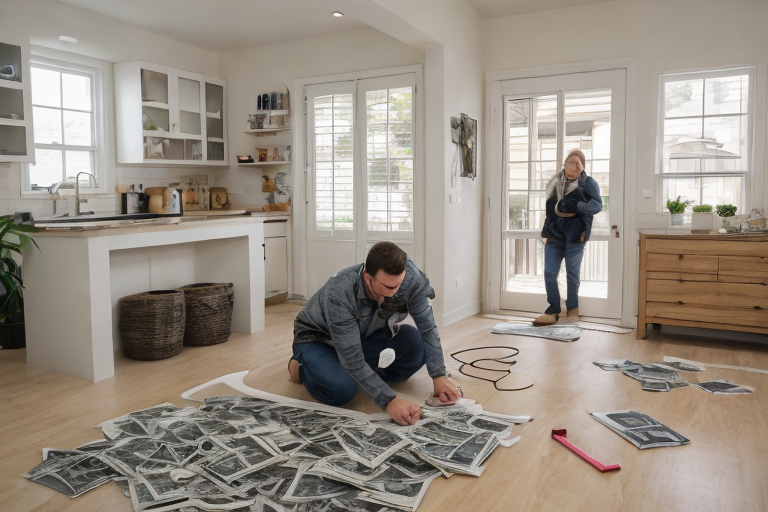With high interest rates and persistent inflation driving up costs for various household items, such as flooring and refrigerators, homeowners have been increasing their spending on home renovations in recent years. This surge in expenditure reached its peak during the early stages of the COVID-19 pandemic, as people invested in modifying their homes to accommodate remote work and learning requirements. However, the home improvement craze seems to be slowing down now.
According to Harvard University’s Joint Center for Housing Studies, the latest Leading Indicator of Remodeling Activity (LIRA) indicates that homeowners are likely to spend $449 billion on renovations and repairs in 2024, which represents a decrease of approximately 7% from 2023 levels. In the first quarter of 2022, expenditures on home remodeling decreased by 1.2% compared to the previous year. Historically, annual growth in home improvement expenses has averaged 5%.
Experts attribute the slowdown to several factors, including skyrocketing interest rates, persistently high inflation, and a national real estate market downturn. Home sales serve as a significant catalyst for renovation spending since homeowners tend to invest the most in upgrades or refurbishments during the initial three years following their acquisition.
Abbe Will, a senior analyst at the Joint Center for Housing Studies, stated that the housing market’s inventory constraints, escalating mortgage rates, and price hikes imply slower home improvement spending growth until the first quarter of 2025, according to the JCHS report.
For individuals contemplating renovation projects, while costs for construction, remodeling, and labour may remain high, scheduling a professional becomes simpler as demand drops. However, costs should not be expected to fall drastically due to these circumstances.
Zonda, a company that tracks the residential construction industry, discovered that renovating the external aspects of a house, such as garage doors or entryways, frequently results in increased resale value and a higher return on investment (ROI). “When it comes to adding resale value to a home, exterior replacement initiatives continue to be the most sensible,” Clay DeKorne, Zonda’s JLC Group’s primary editor, remarked. “Upmarket bathrooms or kitchen renovations will undoubtedly seem valuable to those who pick them out, but they won’t produce nearly as much profit for vendors.”
To manage expenses, some tasks, such as painting a room, might be done independently. More extensive renovations necessitate additional effort to locate the appropriate contractor and acquire quotations on building materials, appliances, or other essential items. The more knowledgeable one is ahead of time, the more ready they will be to anticipate any potentially expensive pitfalls.
Delays occur, whether it’s a surprising repair setback while dismantling a wall to enlarge a bathroom in an older structure or the unavailability of desired light fixtures or windows for several weeks. Allocate more time than anticipated.
Heather Cook, a realtor with Real Brokerage in Charlotte, North Carolina, advises addressing routine maintenance issues like replacing siding or waterproofing outdoor decks since they will save money in the long term.
Before hiring a contractor, confirm they have insurance coverage. After completing the work, notify your insurer so that the enhancements are recorded in your policy. Most insurers require that homeowners carry at least 80% of their home’s replacement value to guarantee complete coverage for repairs or reconstruction following a loss, according to the Independent Insurance Agents & Brokers of America.



Leave a Reply